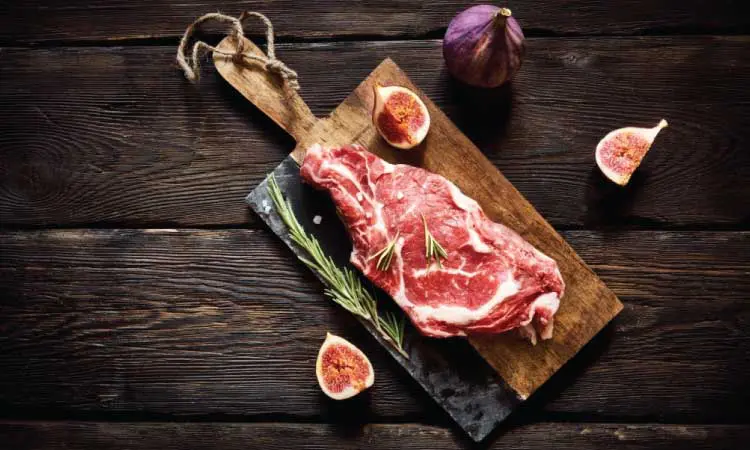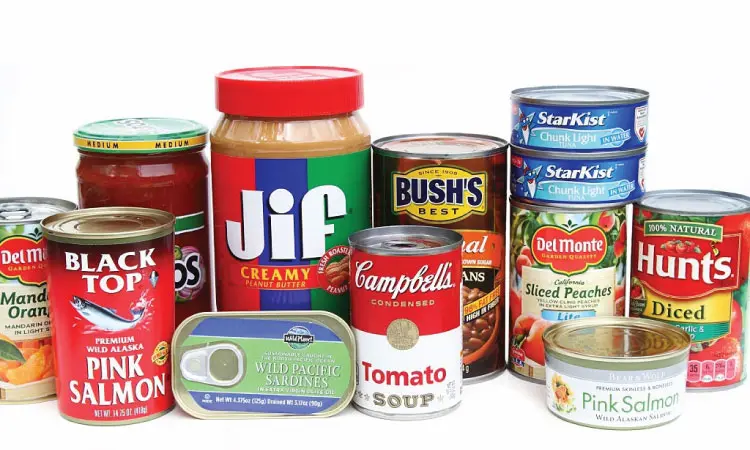A miscarriage is the worst outcome of a desired pregnancy, and it can be a harrowing and traumatic experience for any woman. You have to make sure you do all you can to ensure your own recovery. For that, you need to know about the food not to eat after abortion.
This is a time when your body is going through a lot of changes and is trying to return to normalcy. It is common to feel side effects of miscarriage, such as fatigue, bleeding, and more. What you do and don’t eat can really influence your recovery. Some foods make you heal faster, while others hinder you.
This article sheds some light on food not to eat after abortion.
10 Indian Foods Not To Eat After Abortion
It can be quite difficult to modify your diet once again after you already had to make changes when you found out you were pregnant, especially when you are experiencing exhaustion from your ordeal.
To make this worse, as the hormonal balance is not yet restored, many women still experience food cravings after abortion.
Related Reading: 10 Common Causes Of Miscarriage
Proper research can make it easier to do this. It is important to recognize and avoid the foods that can harm you. What you have to keep in mind is that there is no difference between food not to eat after a medical abortion and natural abortion.
Some Indian food should be avoided after abortion. These food items can hinder your recovery and even leave you worse off. They cause or enhance side effects like inflammation, deficiency of nutrients, digestive issues, and so on.
Calculate Due Date With LMP
Below are ten such foods not to eat after abortion.
1. Fatty meat and dairy products

Some foods can cause inflammation if you consume them right after an abortion or miscarriage. They will cause a lot of pain and discomfort.
One of the main causes of inflammation is the fats found in some dairy products and meat. Hence, it is advised that women who have just gone through a miscarriage avoid such fatty meats and dairy products. Many women who have had abortion wonder if drinking milk is safe.
Well, milk is a good source of calcium and after abortion, it is important to consume calcium-rich products. However, try to stick to skimmed milk rather than whole milk as the latter can bring about some digestive issues that cause pain and discomfort.
Some of the fatty meats and dairy products to avoid after abortion are:
- Pork
- Cheese
- Beef
- Butter
- Lamb
2. Soya products
Not much is known about soy products and their effect on women who have just gone through a miscarriage. However, from the substances in it, we can make our own estimations. Soya contains a substance called phytate. It often hinders the absorption of iron.
The time after an abortion or miscarriage is a time when you need all the iron you can get. You will be bleeding, and it is a delicate time when you are prone to contract anemia.
For this reason, it is best to avoid soya during your recovery period.
3. Starch with low fiber

Carbohydrates are, of course, very important nutrients. They are the main source of energy, and also provide natural sugars to the body. However, some carbohydrates – that is, refined starches – can be quite unsafe.
Refined starches contain a high amount of carbohydrates and a low amount of fiber. This is not healthy, because it can be the cause of the fluctuation or instability of your sugar levels. So, this type of food should not be consumedafter abortion.
Some foods that are low in fiber and high in carbohydrate are:
- Naan
- Parathas
- White Rice
- Noodles
- Biscuits
- Cutlets
- Halwa
- Murukku
A common ingredient to avoid after miscarriage is Maida.
4. Fast foods – including other junk food
Many junk foods are treated as a part of the daily diet by many Indians. And it can be difficult to ignore or completely avoid the colorful advertisements and tasty-looking food. However, it will be no news to you that they are unhealthy. While you can have it every now and then, in moderation, you must avoid making it an important part of your daily menu.
Fast foods and junk food often contain trans fats. They can cause inflammation, which is dangerous during this time, and also very painful and uncomfortable. It can cause unhealthy weight gain, and increase the chances of contracting heart diseases.
Some of the main foods you should try to avoid are:
- Chips
- Potato wedges
- Kachoris
- Doughnuts
- Samosa
- Pani puri
- Pizza, and more.
5. Sweets should be avoided after miscarriage
Sweets include any sugary foods. These foods, which contain a high amount of sugar, have many possible health drawbacks. They have a high glycemic index. This means it can cause considerable fluctuation in the blood sugar levels in your body.
Some sweet foods to avoid are:
- Carbonated drinks
- Plain chocolate
- Candies, and more
So, this is food not to eat after abortion.
6. Canned and processed food- complete no after abortion

While most of the foods listed above are harmless in moderation, this is a type of food that you must avoid completely during the time after a miscarriage. Canned and processed foods can cause several issues in your health.
One of the main issues is that canned and processed foods contain preservatives, which are necessary to keep the food fresh. However, for a woman going through such a delicate time, consuming these can cause issues like food poisoning, and more.
7. Food that is a good breeding ground for bacteria
Some foods are especially dangerous and must be avoided at all costs. These foods are foods that are a good breeding ground for harmful bacteria. Consuming these foods can cause a bacterial infection, leading to many illnesses.
These foods include:
- Unpasteurized milk and other dairy products
- Seafood
- Soft cheese
- Raw meat
8. Food items that can cool your body down
After a miscarriage or abortion, you likely experience cramps. In order to ease the pain, it is best to consume food that warms you, rather than food that cools your body down. Food that cools your body includes:
- Bottle gourd
- Potatoes
- Raw banana
9. Spicy food
It is greatly advised to avoid spicy food after abortion. This is because it can cause health issues such as gastritis. Spicy foods can also make digestion tough and might stress the whole system.
10. Coffee should be avoided after miscarriage

Make sure you avoid coffee after miscarriage as much as possible. This is because coffee contains caffeine, which is a diuretic. It absorbs fluid. This hinders the proper hydration of your body. This is a time when you are particularly susceptible to dehydration, so it is not wise to consume caffeine.
For the same reason, it is advised to avoid other caffeinated drinks like green tea after miscarriage.
What Should We Avoid After Abortion?
Just like what not to eat after abortion, there are certain activities you should abstain from after an abortion.
1. Avoid heavy-duty works
It is important to stay away from activities that require physical exertion. You should avoid activities lifting weight (like lifting water buckets), washing clothes by bending down, running, exercises and other strenuous activities.
Any activities that require physical exertion within two weeks after abortion can potentially increase the risk of heavy bleeding or hemorrhaging.
2. Avoid hurried pregnancy
It is important to avoid getting pregnant immediately after abortion. It is important to wait for 6 months to 1 year before getting pregnant after abortion. Your body takes some time to completely recover from abortion. A complete recovery is vital for a successive healthy pregnancy.
3. Avoid neglecting signs of infection

It is important to watch out for the signs of infections after an abortion. Any signs of infection require immediate medical attention. Infections can give rise to irreversible complications.
Remember, infections if detected early can be effectively treated with antibiotics. Fever, smelly vaginal discharge, lower abdominal pain, and tenderness can be a sign of infection.
4. Avoid intercourse with your partner
Steer clear of intercourse until the doctor certifies you are fully recovered from abortion. healing may not only get delayed with intercourse but it can also increase the risk of infection. Likewise, avoid inserting anything into your vagina including tampons and menstrual cups.
5. Avoid swimming
It is important to avoid swimming until you are fully recovered from an abortion. Likewise, avoid sitting in water as in hot tubs or Jacuzzis. All these activities increase the risk of infection.
6. Avoid missing follow up exam
Follow-up exams are very important after an abortion. More often the doctor schedules an appointment three to four weeks after an abortion. The pelvic exam is very important to make sure there are no signs of infection and everything is back to normal. Also, make sure you never skip the medications prescribed by the doctor.
7. Avoid intake of blood thinners

Do not take aspirin or any medicines or products that contain aspirin soon after the abortion. Also, any medicines that have a blood-thinning property should be avoided after an abortion. Any medicine or food that has blood-thinning properties could increase the bleeding.
Conclusion
It is important to eat the right type of foods after you go through a miscarriage. If you consume foods that will aggravate the health issue you are experiencing after an abortion, it will lead to more health complications. When you are going through this phase, it is important to keep your mind and body healthy so that it does not affect you later when you are trying to conceive.

